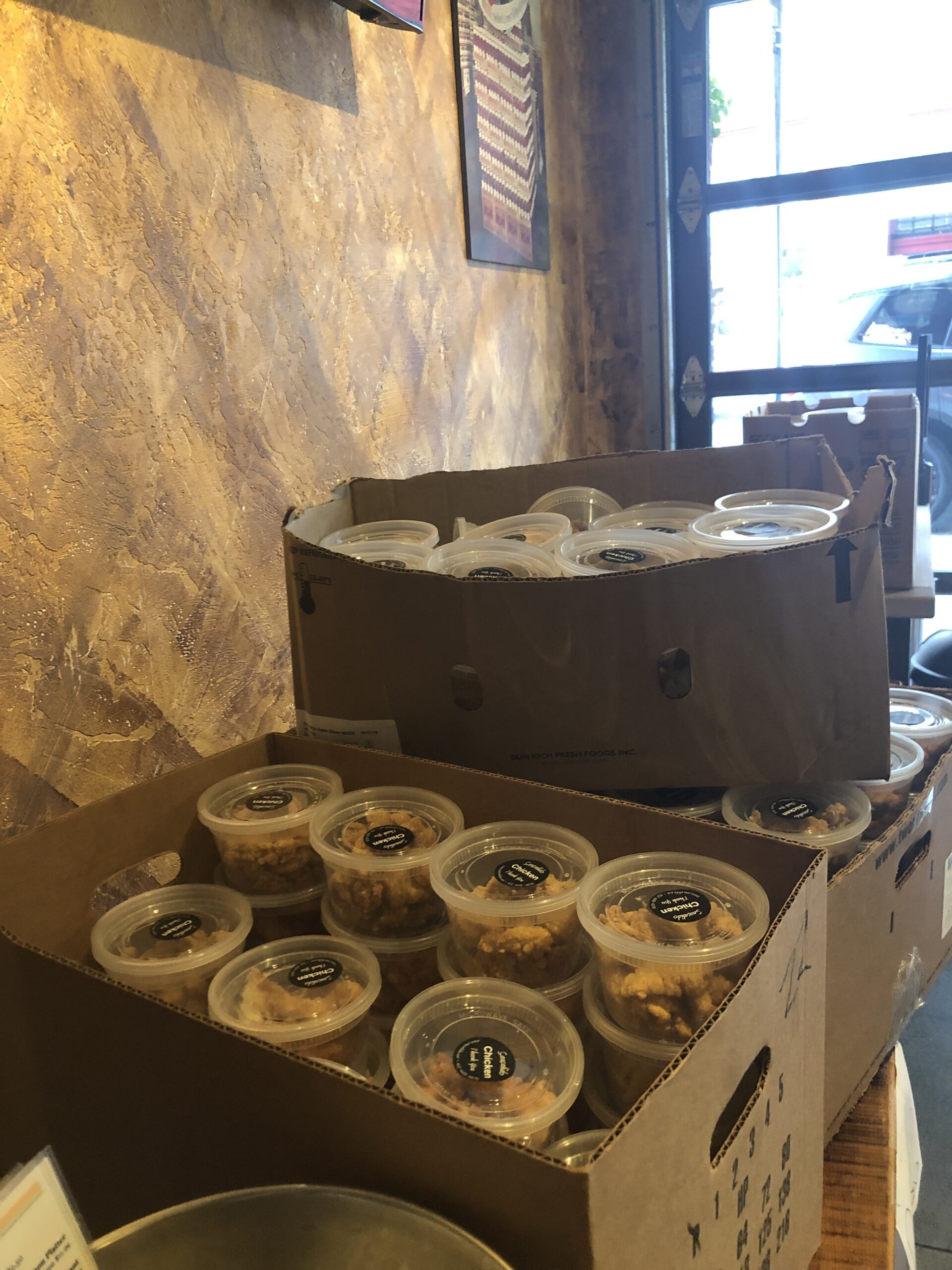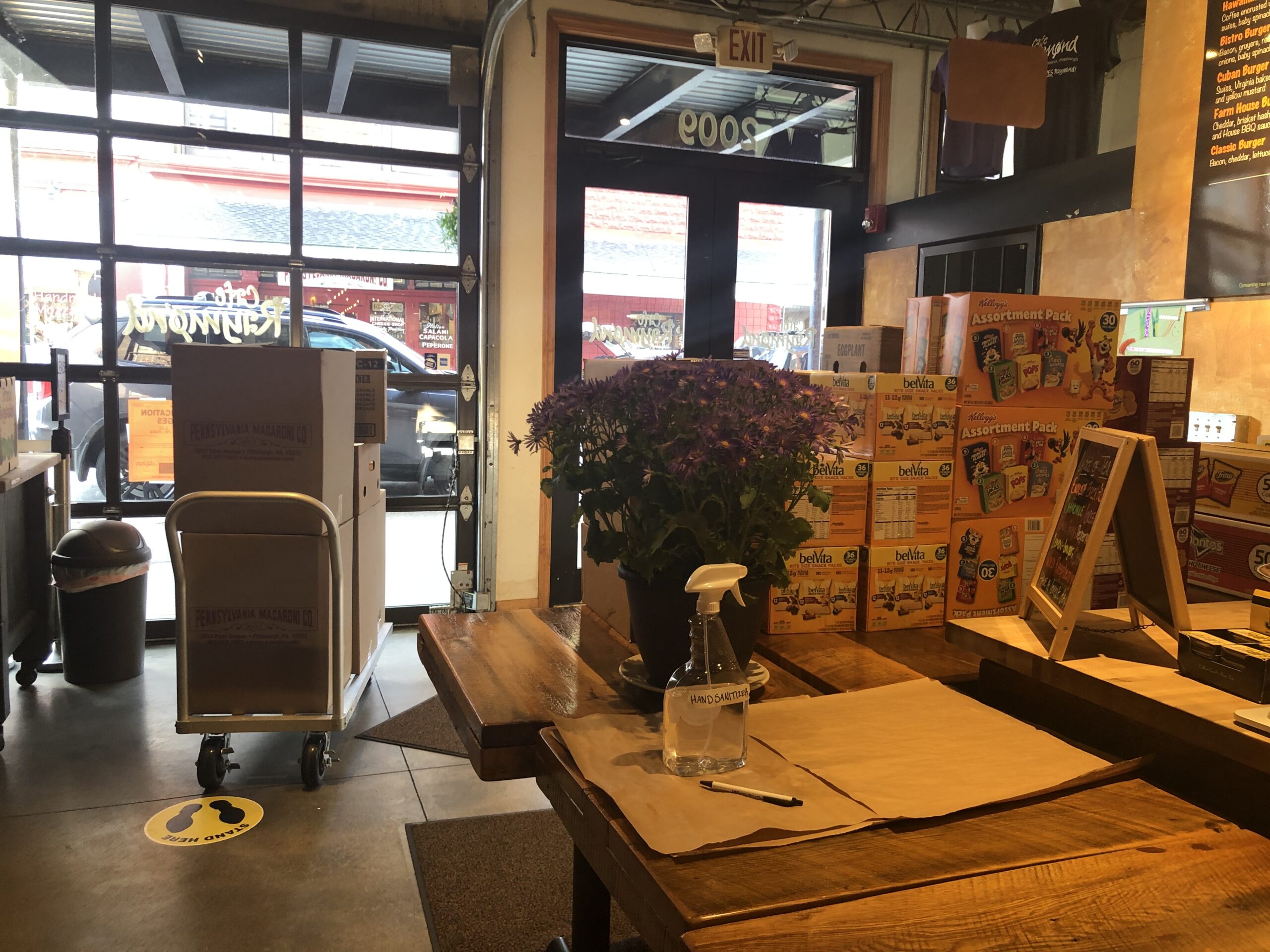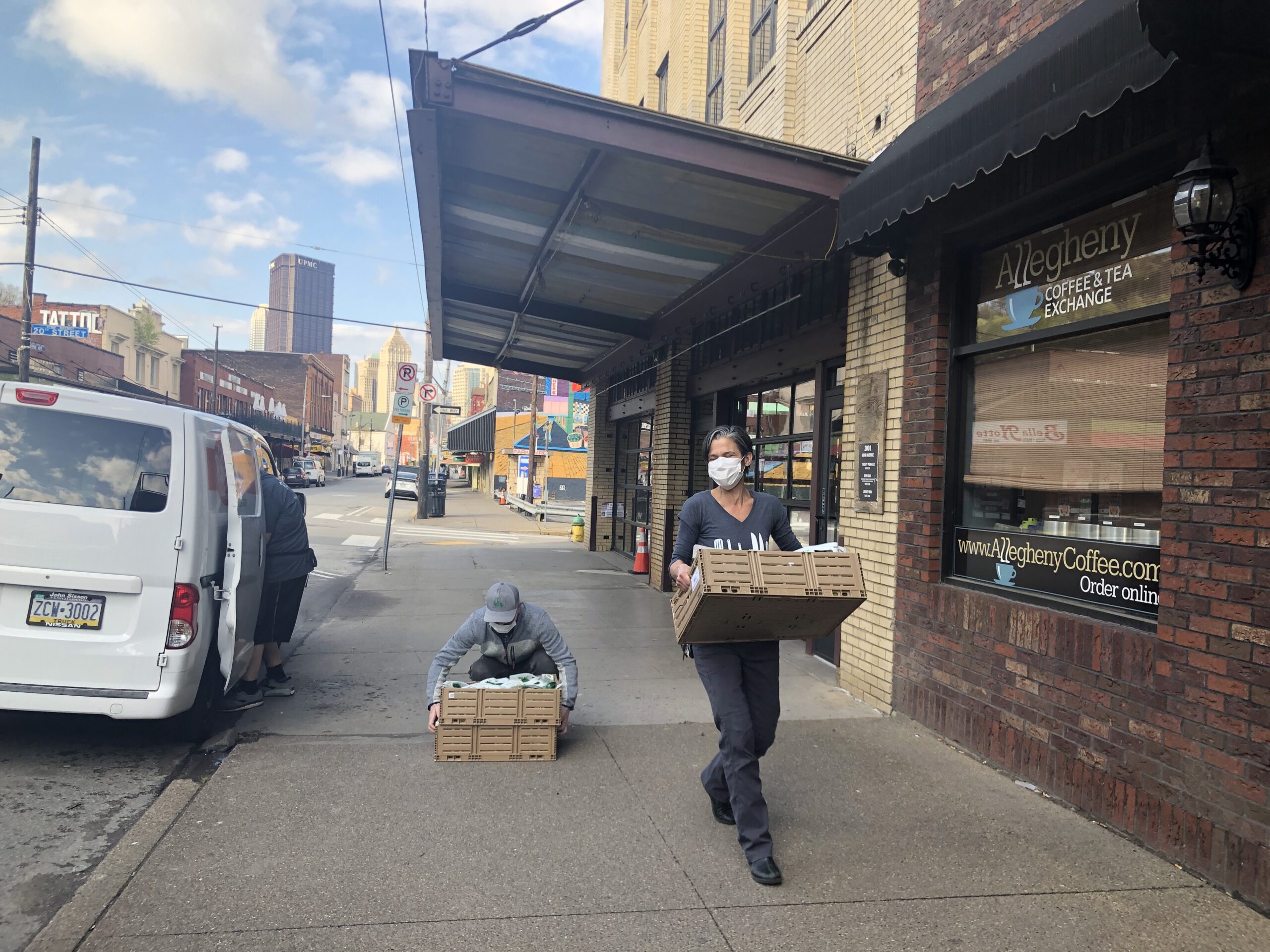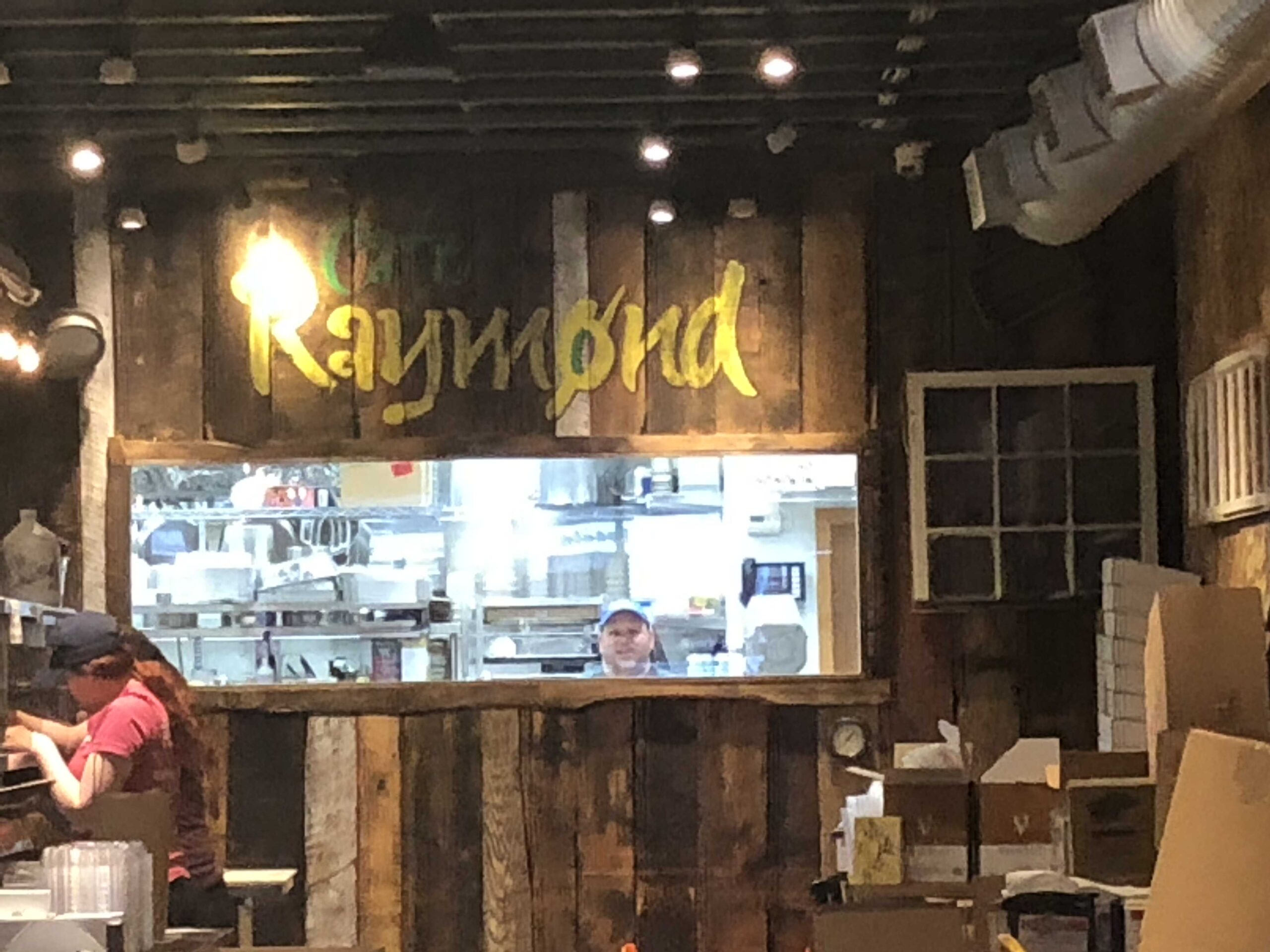PITTSBURGH — When Ray Mikesell was a child growing up on Pittsburgh’s North Side in the 1970s and 80s, his family often found itself in need despite both of his parents working full time.
“When times were tough we went to the neighborhood church or community center where we would get a box, as I remember, that had canned corn, and I mean it was a can with a white label and the word ‘corn’ in black lettering, puffed rice cereal, and of course government cheese,” said Mikesell, the owner of Cafe Raymond on Penn Avenue in Pittsburgh.
Government cheese was a kind of iconic, five-pound brick of orangeness that tasted somewhat like Velveeta, somewhat like American cheese, and filled the bellies of children and families when times were tough.
Times are tough now, and Mikesell wanted to do his part to make sure that children and families in the Pittsburgh area have something to fill their bellies, something a little better than canned corn, puffed rice cereal, and government cheese.
So the restaurateur who has been barely staying afloat by doing takeout orders and Sunday dinner entrees sent out a text to all his friends and family and the people who typically attended the monthly family-style Sunday suppers he serves in long tables in the diner’s second floor, and asked them if they could donate a little cash to help feed those in need.
Within minutes he had secured thousands of dollars.
It is early Monday morning, and already his restaurant is filled — not with people as it was in the days before the restrictions of the coronavirus, but with neatly organized portions of food. It’s good food: salads, chicken, fruit, pasta, all cooked Sunday and Monday, labeled and lovingly packaged for children and families within the Pittsburgh city limits who were going without.

Dollies and trays of the food along with stacks of juice and drinks and cases of fruit are lined up and waiting to be picked up by Jennifer Flanagan, the executive director of the Community Kitchen Pittsburgh. The organization is a nonprofit located in the Hazelwood neighborhood that typically provides culinary training and makes and delivers meals for schools and after-school programs.

When Mikesell told her about the donation, the second one he has done for her nonprofit to distribute, he warned her she needed to bring a box van and not an SUV.
When she and fellow staff member Andrew Leslie showed up just after 8:30 a.m. to pick up the food, the astonishment was evident in their eyes at the size, scope, organization, and sheer quality.
“This is astounding,” she said through her mask. “It’s amazing what all he sent,” she said after unpacking the donation.

“Really great food,” Flanagan said. “And we actually partnered with the Latino Community Center, and they sent it out to their families. And then, the coffee from La Prima went to two shelters that we work with, the Veterans Place and Bethlehem Haven Women’s Shelter, because we are trying to spread out gentle love.”
“In normal times, we do culinary training for people with barriers to employment,” Flanagan said, “We run a program licensed by the department of education, the training program, and we work with people coming out of incarceration. Because we do food service as kind of a foundation of the curriculum, it was kind of a no-brainer for us to switch over to doing emergency meals during this time.”
“There’s a dignity in providing food to people who are vulnerable in these uncertain times, what Raymond did, first by sending out that text asking to help families in need and then the response he received from people wanting to step up,” she said. “[These] are the kind of untold stories that are really who we are.”
After the crates of food move out, Mikesell scurries back to the kitchen. Yes, he’s preparing more food, this time for the Life of the Life Rescue Mission on Pittsburgh’s North Side.

Before the coronavirus, Mikesell would be preparing his menu for his Sunday suppers, a monthly event he created for people disconnected from family who yearned for the noise and community they had growing up near family members.
He misses it. So do the nearly 100 people who used to come and crowd one big long table patched together to encourage that thing we no longer do together anymore: Sit jammed close together so that food and gossip and wine can be shared joyfully.
“I miss it,” he says quietly.
“That’s why I do this, that’s why I hoped people contributed, so that in some way we can feel like we are still together, helping ourselves and others.”

